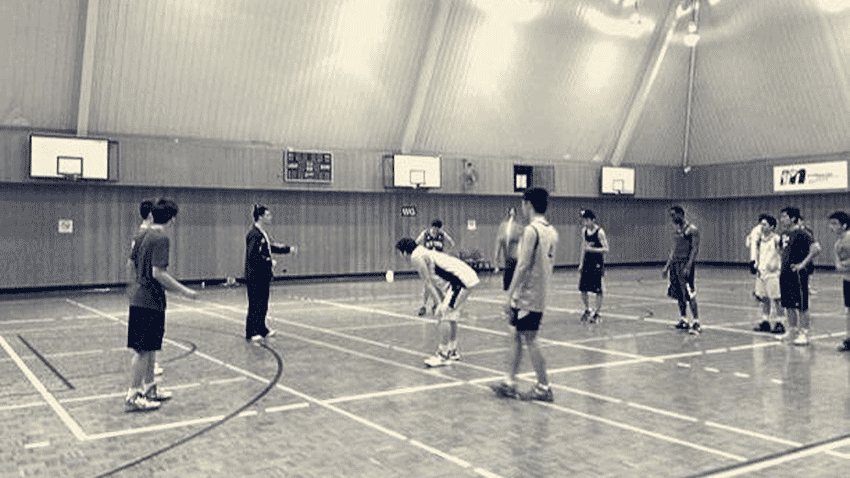Life lessons from my basketball training, coaching
I have joined Melbourne University Basketball Club’s domestic competition program for over two years, also started coaching for their domestic B grade women team run by CYMS since the 2014 winter season. I would like to share the life lessons I have learned so far both as a player and a coach.

Set Specific Goals
For basketball players who would like to improve their game, they have to come to the gym with a purpose, an aim for what player he or she would like to become, or they are really wasting their time. Setting goals is crucial for the development of a basketball player, even a team. I think the same principle holds true in real life.
By setting specific goals, a person becomes much clearer about where you would like to go in life, who you would like to become in a year, in a month, even in a week. Without setting specific goals, it is too easy to do whatever that comes to the mind and end up going nowhere near where you would like to go. It is important to set specific goal in order to find constructive answers to questions such as:
- What is my specific goal
- What are my weaknesses and strengths for my goal
- What do I need to get there
- How am I going to reach my goal
Belief
Mental state is a huge factor for basketball games. You have to believe in your ability on the court to be able to excel as a player. Belief is sometimes the difference between an excellent player and an average player. I can practice thousands of hours at the gym, but if I do not believe in myself on the court, I have already lost the battle.
The best player does not have doubt in what they could accomplish. Derrick Rose became the youngest MVP in the history of NBA as of 2014 at the age of 22. A year ago before winning the award, the 21-year-old D-Rose had no doubt in what he could become.
Stay Focus
The key to keep yourself on track toward your goal is to stay focus. There are a lot of distractions and people that could influence you. Keep your eyes on the ball, remain focus on the goal you would like to reach and who you would like to become every single day. Listen to two times USA youth basketball gold metal winner Recee Caldwell talking about Maintaining focus from USA Basketball.
Deliberate Practice
Focusing on the details is vital to grow as a player. When I went to the No Limit Basketball shooting clinic run by Pete Maunder, the first thing he said was “To become a great shooter you need to do two things, first is shooting correctly, second is a lot of practice shooting it correctly“. Whenever a player steps onto the court, either for a game, for a practice, or for a drill, the player should understand the key focus of what he/she is doing. Knowing the key focus for what you are doing will help you learn much more efficiently.
For example, when players go through a drill, they should understand the focus of the drill whether it would be the right spacing. correct footwork, or proper stance. Otherwise, players will spend hours practicing incorrect movements that are not even slightly useful in a real game. “It’s not the hours you put in your work that counts, it’s the work you put in the hours” – Sam Ewing. For further reading, I suggest this article by James Clear “Lessons on Success and Deliberate Practice from Mozart, Picasso, and Kobe Bryant“.
Hard Work
Successful basketball players talk a lot about hard-work pays off. To become a great player is a long term commitment. It is not something that happens overnight. It requires consistent effort and preparation every single day, so that you are ready when the opportunity comes. In my basketball experience, I also believe there is no shortcut to success and growth.
The best NBA players still work their tails off every day no matter how successful they already are. Listen to these people talk about hard work: Ray Allen – 10 times NBA all-star, NBA’s all-time leader in three-point field goals made as of 2014. Chris Paul – 7 times NBA all-star, 6 times NBA steals leader.
Feeling vs. Principle
Some days, I do not even feel like waking up or going to the gym to practice. If I listen to my little feelings, at the end of my day I would have done nothing. If I listen to my feeling, I would just quit whenever I feel pain or whenever I get tired. What are your principles? What would you like to accomplish today or this week? Sticking to your principles is what get you one step closer to your goal each day, not your feelings. “At the end of your feeling is nothing, but at the end of every principle is a promise” – Eric Thomas
Disclaimer: I do not own any of the audio, video materials on this article.